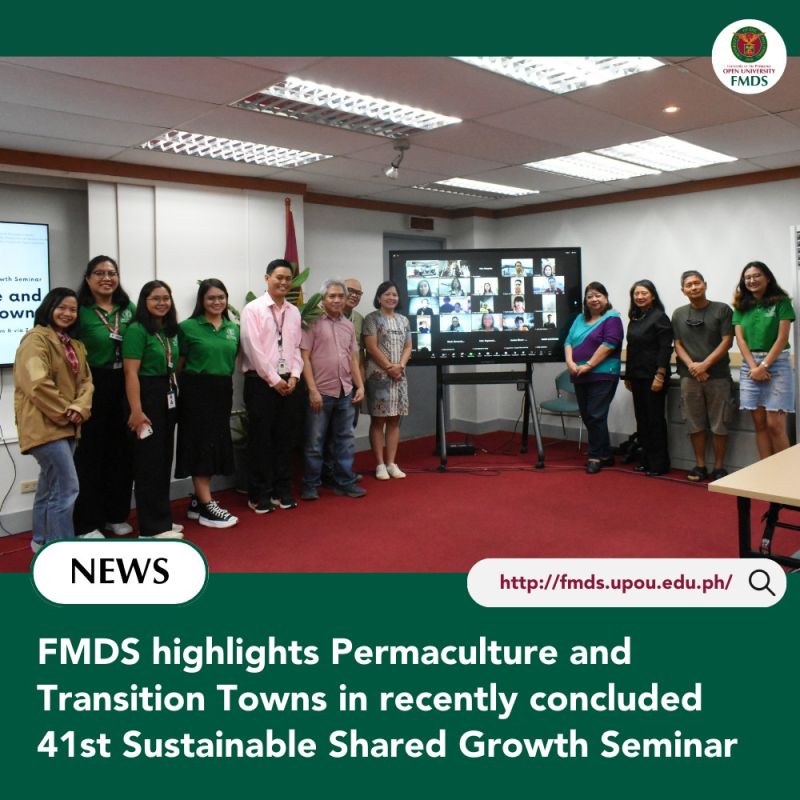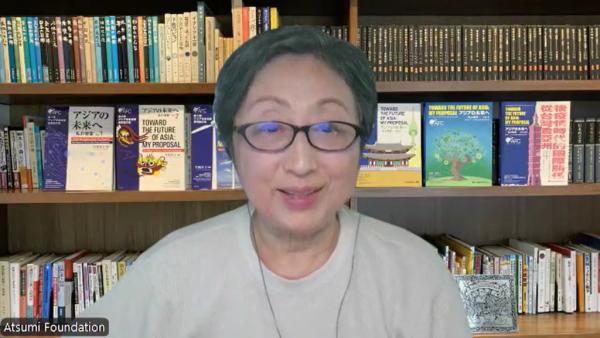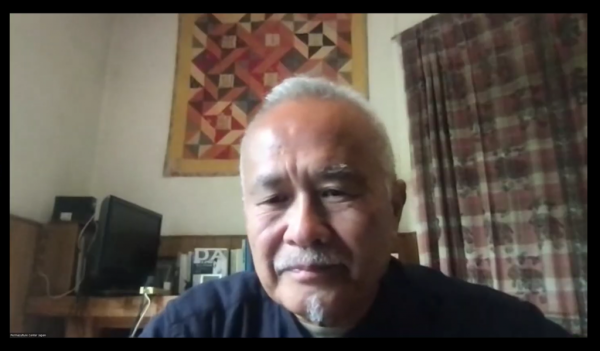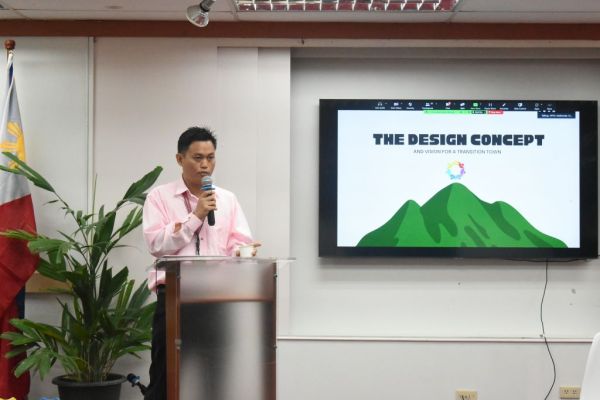
To promote the sharing of sustainable development experiences and approaches, which can serve as valuable resources for multidisciplinary collaboration among faculty, staff, and students, FMDS, in collaboration with Sekiguchi Global Research Association (SGRA), Atsumi International Scholarship Foundation (AISF), and the College of Public Affairs and Development (CPAf) at UP Los Banos (UPLB), organized the 41st Sustainable Shared Growth Seminar. The seminar, titled ‘Permaculture and Transition Towns,’ was held on 08 May 2024.
With UP Open University prioritizing its sustainability thrust through SiALLC (Sustainability in Action – A Living Laboratory Campus), the seminar aligns with the overarching theme of sustainable shared growth.

In a recorded video message, Ms. Junko Imanishi, Chief Representative of SGRA, highlighted the significance of the seminar. She emphasized its milestone status in extending Community Currency research and advocacy, while also focusing on fostering connections across national boundaries between Maahas and Fujino. These communities are depicted as moving forward together, unified by small yet significant actions.

Mr. Kiyokazu Shidara, Chief Representative of the Japanese Permaculture Association, led the presentations by discussing Fujino, a Town Located at the Edge. He began by introducing Fujino, now situated in Sagamihara in Kanagawa Prefecture, using picturesque images to illustrate the town and delving into its history. Shidara-san explained how Fujino transformed into an Art Town, particularly during the Second World War when numerous artists evacuated from Tokyo to Fujino due to its ideal environment for art creation and its abundance of nature. The Fujino local government subsequently supported these artists by providing subsidies, leading to the town’s designation as a modern art collective deeply connected to its local environment.

Following this, Dr. Jabez Joshua Flores, the designer of the FMDS Permaculture G.A.R.D.E.N. (Growing Appreciation toward Resilience, Development, Entrepreneurship, and Nutrition), an alumnus of UPOU, and an expert in Permaculture, discussed the local counterpart of Fujino town, which is Maahas in Los Banos, Laguna. He began by outlining three main points for discussion: The Design Concept, Our Progress, and The Future. Dr. Flores elaborated on the goal of addressing Sustainable Development Goal (SDG) 2 in the conceptualization and execution of the FMDS Permaculture G.A.R.D.E.N., emphasizing designing with nature by integrating local systems with wildlife corridors, portraying it as a microcosm of the larger landscape of Mt. Makiling. He underscored that the FMDS Permaculture G.A.R.D.E.N. serves as a learning avenue not only for the UPOU community but also for the broader community within Los Banos.
Dr. Flores emphasized six aspects, based on permaculture principles, for a transition town model: Health and Nutrition, Waste Management, Local Economy, Food Security and Biodiversity, Community-building, and Resource Security. In connection to these aspects, he concluded his presentation by sharing the progress of the FMDS Permaculture G.A.R.D.E.N., highlighting its growth from 2022, the conducted researches, implemented programs like the Adopt-A-Plot & Alitaptap Community Currency, its expansion in accordance with university plans, and the numerous visits made by community members from around the world.

In line with the tradition of the Sustainable Shared Growth Seminar, the presentations by the speakers were followed by discussions led by Dr. Joane V. Serrano and Dr. Ferdinand C. Maquito. The seminar concluded with Assistant Professor Cesar Z. Luna delivering the closing remarks, emphasizing the importance of initiating and replicating such initiatives in their respective communities.
Written by Noreen Dianne S. Alazada ♦ Edited by Larry N. Cruz ♦ Cross-posted from the UPOU FMDS Website








